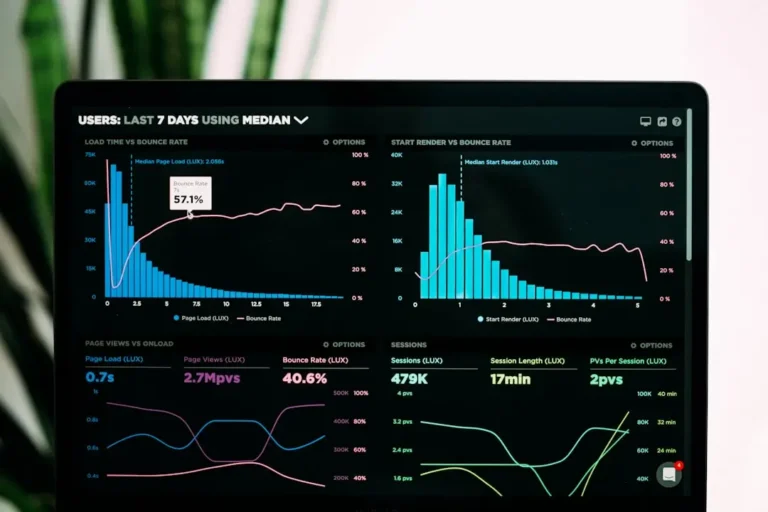Why Website Maintenance is Critical for Business Growth in 2025 and Beyond
Introduction
In today’s fast-evolving digital world, website maintenance is no longer optional—it’s essential. Whether you’re running an e-commerce site or a local service-based business, your website is the front line of customer interaction. Yet many small business owners underestimate the importance of regular website maintenance. This blog explores why maintaining your website is key to long-term success, security, and scalability in 2025 and beyond.
1. What is Website Maintenance?
Website maintenance refers to the regular process of checking, updating, and optimizing a website to ensure it functions properly, stays secure, and delivers a high-quality user experience. It involves tasks such as:
- Updating content and images
- Fixing broken links or error pages
- Regularly updating plugins and CMS platforms
- Backing up website data
- Scanning for malware and vulnerabilities
2. Why Website Maintenance is More Important Than Ever
📌 Security: A neglected site is a prime target for hackers. Routine maintenance keeps your software and plugins updated, minimizing vulnerabilities.
📌 User Experience: Broken links, outdated content, or slow loading times frustrate visitors. Maintenance ensures smooth navigation and better engagement.
📌 SEO Performance: Google favors updated, well-maintained websites. Regular updates can lead to better indexing, faster loading times, and improved ranking.
📌 Brand Credibility: A broken or outdated website undermines your brand’s professionalism. Ongoing maintenance keeps your brand image strong.
📌 Backup and Recovery: Routine backups ensure your data is safe in case of a crash, malware, or accidental deletion.
3. What Happens If You Don’t Maintain Your Website?
Failure to maintain your website can lead to:
- Decreased traffic due to poor SEO
- Higher bounce rates from slow or broken pages
- Increased risk of hacks or malware
- Downtime and lost revenue
- Costly emergency repairs
4. How Often Should Website Maintenance Be Performed?
A good rule of thumb is to perform basic maintenance tasks weekly, monthly, and quarterly.
Weekly:
- Review analytics for errors or dips in performance
- Delete spam comments
- Check for broken links
Monthly:
- Run full backups
- Test contact forms and checkout processes
- Update plugins and themes
Quarterly:
- Refresh outdated content
- Conduct a full SEO audit
- Evaluate user experience and design
5. Choosing a Website Maintenance Plan
If you’re not tech-savvy, hiring a professional team is wise. A good website maintenance plan should include:
- 24/7 monitoring and emergency support
- Scheduled backups
- Security patches and updates
- Performance optimization
- Monthly reports on site health and performance
Conclusion
Website maintenance is a crucial investment for any business that values its digital presence. Think of it like routine maintenance for a car—ignore it, and you risk a breakdown at the worst possible time. Stay proactive, stay updated, and stay competitive in 2025 and beyond.
FAQs
Q: What does website maintenance cost?
A: The cost of website maintenance can vary widely based on the size, complexity, and specific needs of your website. For small businesses, typical monthly expenses range from $50 to $300, covering essential services like plugin updates, security monitoring, backups, content updates, and basic performance optimization. Websites with e-commerce functionality, advanced integrations, or higher traffic volumes may fall toward the upper end or exceed this range due to the increased support and technical upkeep required. It’s important for small businesses to budget accordingly to ensure their site remains secure, functional, and up to date.
Q: Can I do website maintenance myself?
A: Yes, small business owners can handle some website maintenance tasks themselves, but it does require a certain level of technical expertise. Routine actions like updating content, managing blog posts, or performing basic plugin updates may be feasible for those with some web knowledge. However, more complex responsibilities—such as troubleshooting errors, ensuring security compliance, optimizing performance, and managing backups—are best left to professionals. Relying on expert support not only reduces the risk of technical issues but also ensures your website remains secure, efficient, and aligned with best practices in a constantly evolving digital landscape.
Q: How long does website maintenance take?
A: Routine tasks can take 1–2 hours per week. However, a thorough monthly audit or update may require more time.
Q: Does website maintenance affect SEO?
A: Absolutely. Regular website updates, optimized loading speed, and clean, efficient code all play a crucial role in improving your site’s search engine rankings. Search engines prioritize websites that offer a smooth user experience, are frequently maintained, and follow modern coding standards. Keeping your content fresh and relevant signals to Google that your website is active and trustworthy. Additionally, faster load times reduce bounce rates and enhance usability—both key ranking factors. Clean code ensures that search engine bots can efficiently crawl and index your site, improving visibility and discoverability in search results.
Q: Is website maintenance necessary for small websites?
A: Yes. Even a small or static website needs regular updates to maintain optimal security, performance, and SEO relevance. Security updates help protect your site from vulnerabilities and hacking attempts. Performance enhancements—such as fixing broken links, optimizing images, and updating plugins—ensure that your website loads quickly and runs smoothly. From an SEO standpoint, keeping your content fresh and your site technically sound signals to search engines that your site is active and trustworthy, which can positively impact your rankings. Neglecting updates can lead to decreased visibility, poor user experience, and potential security risks.









